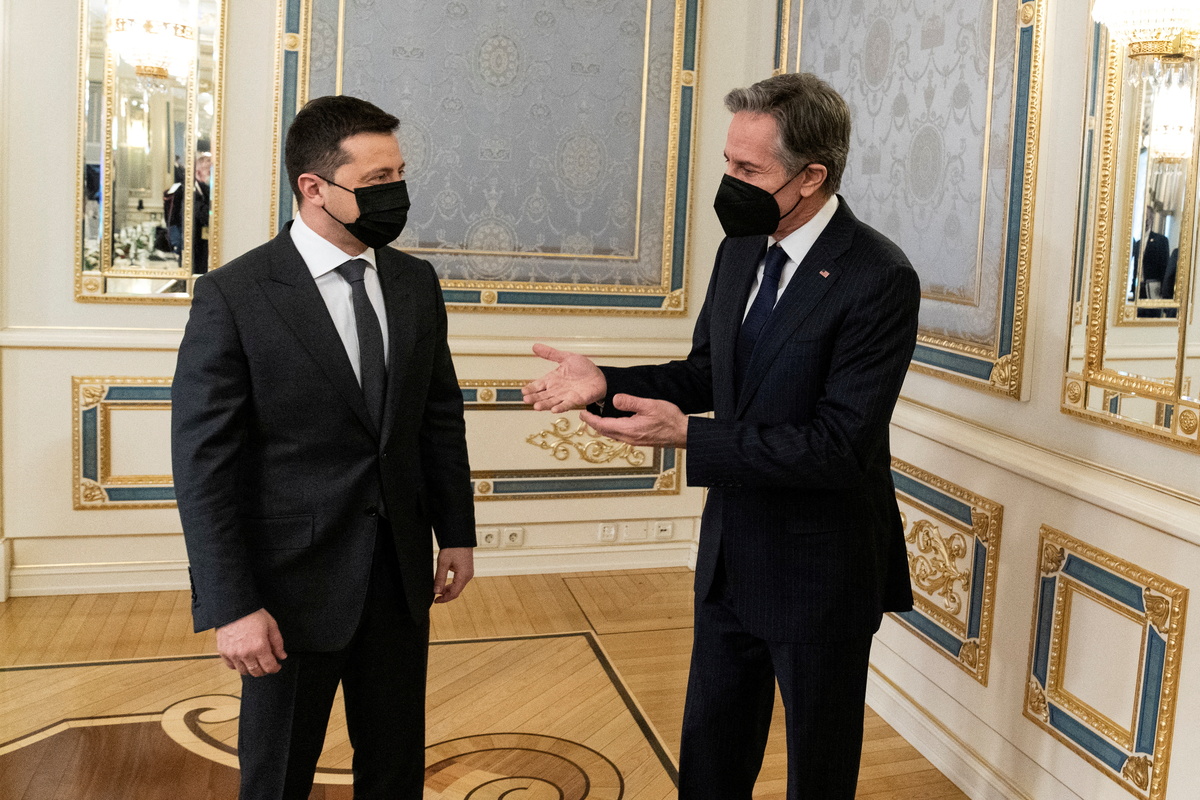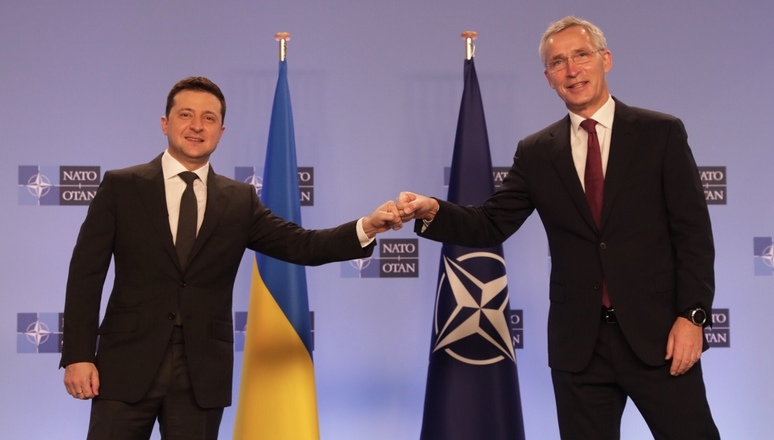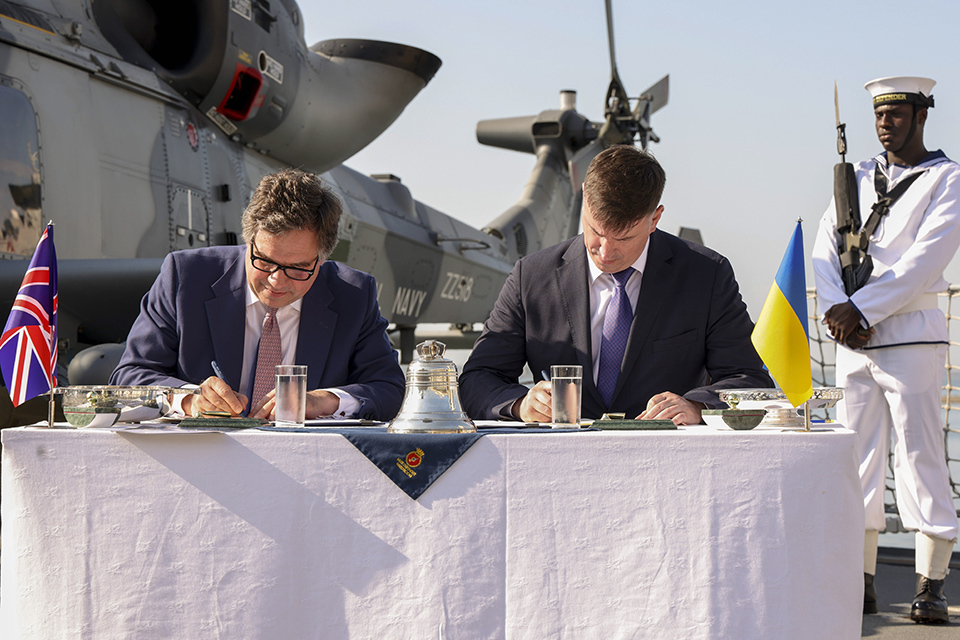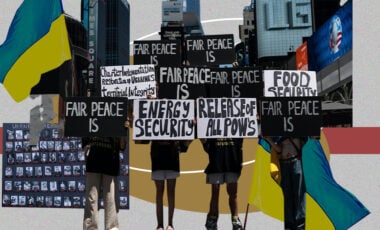Why Blinken came and what's the likelihood of a full-scale war: what Ukrainians should prepare for
Ukraine's eastern neighbor hasn't become wiser and calmer. The war continues. Russia is pulling more and more weapons to the borders, and some Ukrainians are collecting so-called alarm suitcases in case of a full-scale offensive.
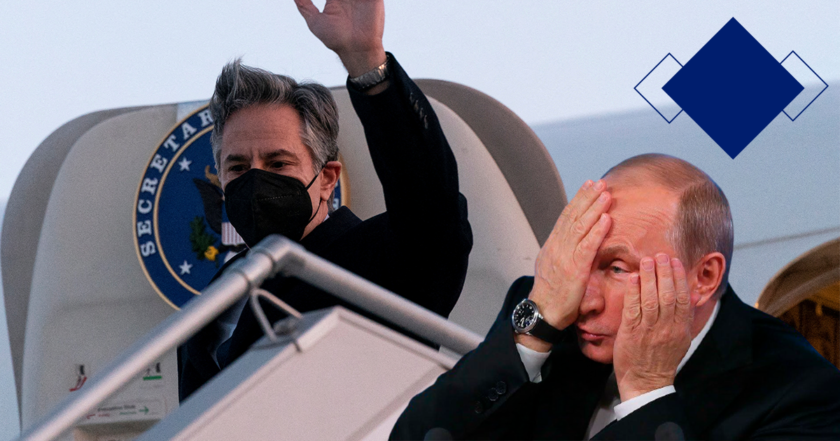
The world is worried, the Office of the President is welcoming the American leadership with visits, and Rubryka is analyzing what's happening, how the world will react to Russia's offensive, and what these actions will turn out to be.
What is the problem?
The world is looking for a "sedative" for aggressive Russia
"President Putin created the crisis by concentrating 100,000 Russian troops along the border with Ukraine, which also includes the transfer of Russian troops to Belarus over the weekend," a senior US State Department official said at a January 18 telephone briefing.
And on January 19, US Secretary of State Antony Blinken arrived in Kyiv to confirm, according to official sources, America's readiness to support Ukraine.
Why now? Because since the fall of 2021, foreign and national intelligence has been reporting that Russia is withdrawing military equipment to the border with Ukraine. The self-proclaimed (but de facto) Belarusian government hints that it will support Russia. And world analysts warn: Russia may launch a full-scale offensive in early 2022.
Diplomatic talks are intensifying, and Europe and the United States are trying to reach out to President Putin.
What is the solution?
Showing that Ukraine will not be left without support
A meeting of the NATO-Russia Council took place last week. The US Secretary of State held talks with Russian Foreign Minister Sergei Lavrov. And on January 19 he is already talking to the Ukrainian authorities.
Meanwhile, the network is beginning to "disperse" the so-called information from sources close to President Zelenskyy, saying that this visit will end in inclining Ukraine to make concessions to Russia. However, the information has no official confirmation, and political experts and analysts have another position.
"I reject the idea that everything can end in concessions. Antony Blinken of Biden's team calls it what it is and is straightforward about Russia and its responsibility for escalation, for information campaigns, for disinformation. First of all, Antony Blinken is about support and the realism of de-escalation. And this is about Ukraine's importance to the United States.
This is what Blinken will emphasize. He will explain the results of last week's talks between the United States, both bilateral and multilateral, and there are no big concessions," said Vladislav Faraponov, an American politics expert.
According to the expert, this visit is a demonstration of the readiness of the United States to move to more serious action, such as a series of sanctions, which have been discussed since mid-December. In particular, says Vladislav Faraponov, the most realistic is the likelihood of sanctions against Putin and his entourage.
"I would also link this visit to the fact that CIA chief William Burns had previously visited Kyiv, and it is obvious that there are some issues that the American party is ready to discuss exclusively one-on-one," the political specialist added.
Mykola Bielieskov, an expert at the National Institute for Strategic Studies, also stressed the importance of the support that the United States can provide. He notes that the United States, with its military capabilities, can provide Ukraine with the necessary assistance. But any support is important to show Russia that Ukraine will not be left alone.
"We understand that all these negotiations and sanctions play an important role and are essential components in a scenario that can weaken Russian aggression. But sanctions alone will not stop military equipment, it also requires weapons…
America must now begin to act as Britain did, handing over anti-tank sets to Ukraine, seeing that Russia is already pulling weapons from its very remote territories. And the United States has completely different capacities and can provide much larger assistance," Mykola Bielieskov commented.
How does it work?
"We saw the result, but not the one that takes away all the issues"
So, negotiations are ongoing. Currently, analysts are identifying three scenarios of probable escalation. In short, according to the classification of the Kyiv School of Economics, they look like this:
- Limited. Conflict zones in Donetsk and Luhansk regions.
- Expanded. Geographical risk zone: Kharkiv, Sumy, Mariupol, Kherson and Odesa, Black Sea border.
- Full-scale scenario. Geographical risk zone: the whole territory of Ukraine.
Even though none of the scenarios has yet taken place, and the probability of an offensive still remains only a probability, Russia is already suffering losses. In particular, as reported by Radio Svoboda, the Russian stock market sustained the largest crash since March last year. If Russia continues the narrative of aggression, its shares will continue to fall even without additional sanctions.
Negotiations also bring results, but, according to the expert, they're not as big as we would like. Mykola Bielieskov from NISS says:
"The talks intensified last week. And yes, we saw the result, but not the one that takes away all the issues. In fact, we saw a stalemate where, on the one hand, there are Russia's maximalist, completely unfounded demands and, on the other, the West's principled position. Yes, we are ready to talk about certain issues, such as mutual trust, arms control, missile systems, training, the presence of separate weapons systems… But we are not ready to make the concessions you want from us.
That is, no closing the door to NATO for Ukraine or Georgia, no spheres of influence, no secondary status for virtually all of Central and Eastern Europe."
In all international negotiations, Russia has demanded that NATO suspend its enlargement, doesn't include Ukraine, and stop assisting it. In particular, they demand from NATO experts to refuse to conduct exercises for Ukrainian servicemen.
At the same time, Russia is going to start joint exercises with Belarus "Union Determination 2022." The scale of these exercises is not disclosed, they only say that at least two divisions of S-400 ADMS, one division of Pantsir complexes, and a squadron of 12 Su-35S fighters will be transferred to Belarus.
The purpose of the exercises is supposed to be to help Belarus protect itself from unwanted external influences and strengthen the "most vulnerable" places. The "peacekeeping" scenario is already familiar to Ukrainians.
Does it work?
"They will help those who ask for it"
Experts agree on the importance of preventive measures, i.e. that Ukraine should arm itself with equipment and support in such a way as not just to defend itself, but not let anybody attack. For example, Vladislav Faraponov emphasizes the increase in the reserve fund, funds that will be spent on emergency costs in case of escalation.
"We need an increase in real military aid, economic aid. We can also count on an increase in the reserve fund. Last spring, when there was also an escalation, it was about 100 million dollars of the reserve fund. In my opinion, it would be right to talk about this reserve fund. To increase it, for instance, to $400 or $500 million, so that it can be used in case of urgent need.
But we also need to talk about increasing aid right now. Unfortunately, the United States doesn't seem ready for more action yet, but that doesn't mean we shouldn't talk about it. They will help those who ask for it," says Vladislav Faraponov.
Mykola Bielieskov also believes that the international community should become more active, not wait for a direct attack. The expert notes that we can get significant support from NATO countries, but it is likely to be less systematic than we would like.
"After Kyiv, Blinken is flying to Berlin, which speaks to the need for America and Europe to discuss how they will cooperate here. But we can expect the support of NATO members.… We are very pleased with the statement of Estonia. It seems that it's a small country that has Russia on its side, but at the same time, it is ready to support Ukraine.
If it all ends with Russia just playing with muscles and stopping, we will be able to live with it. If they have nothing else to do but transport weapons from place to place, let them do it. But there is a question whether there will be any significant punishment, even if the offensive begins," Mykola Bielieskov explains.
Even more useful solutions!
What should non-politicians do?
Keep calm and support the Armed Forces. Rubryka has already prepared content on how to ensure one's security in the event of a full-scale offensive and how to support the army. More information in the article here:



